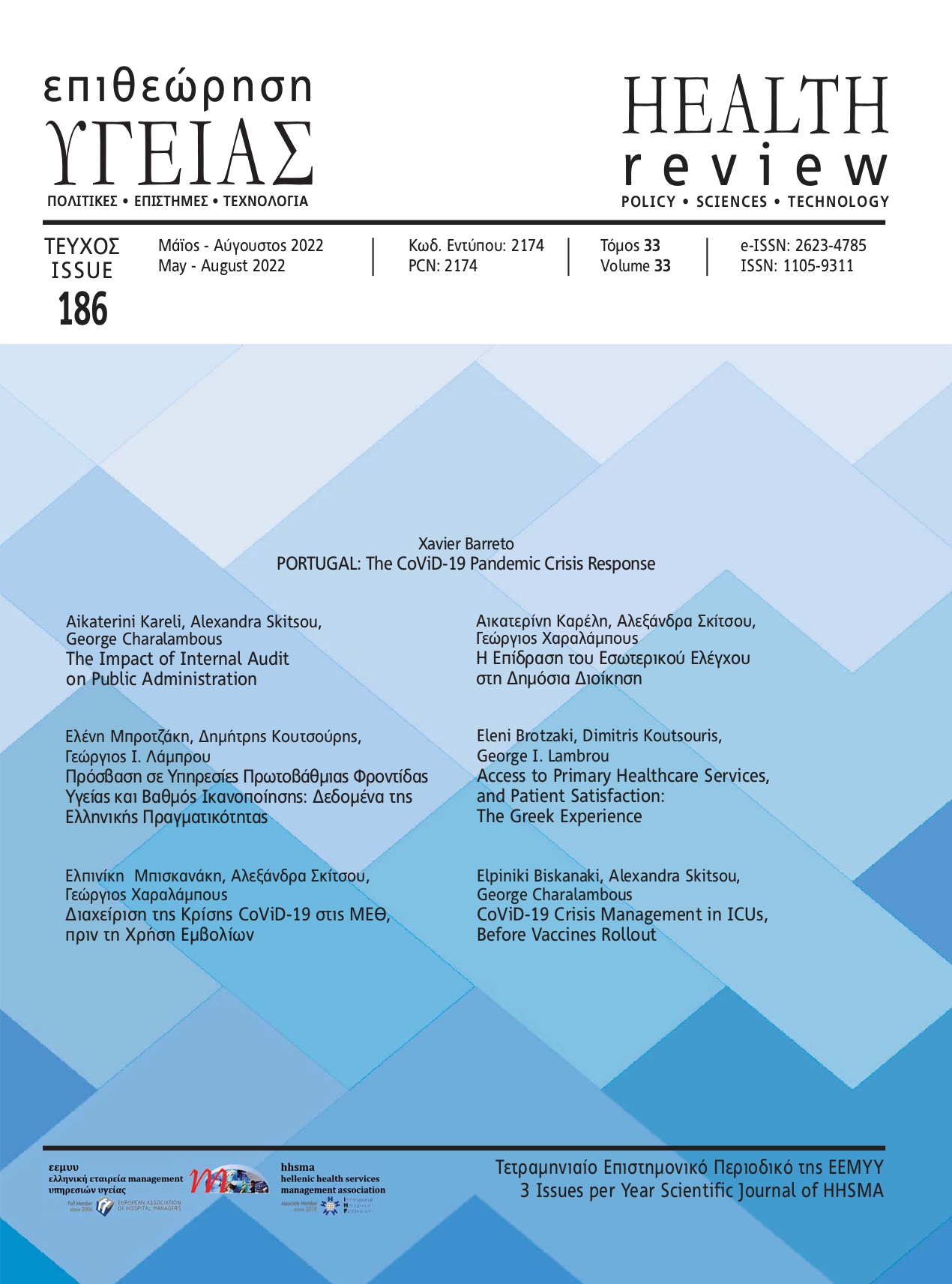Abstract
The role of Internal Audit (IA) is considered particularly important, especially in recent years when the economy of Greece, and not only, has been shaken by both the financial and recent pandemic crisis. In this new environment, IA emerges as a cognitive scientific subject -with practical professional orientation-, in which the executives, in both the public and the private sectors, should be trained in order to respond to the expanded needs and requirements of their role. This study aims to answer three linked research questions (RQ): – How are studies of IA in the public sector progressing? – What does the existing literature on public sector IΑ emphasize, and where do its critics lay? – The future of government-funded IA studies: what lies ahead?
We conducted a literature review on the databases Scopus, Web of Science, and Google Scholar, using the terms “accounting fraud”, “internal audit”, “public governance”, and “external audit”, published in English, over the decade 2010-2019. Increased scholarly interest in the subject has been noted, although most publications focus on a single country, especially those of emerging markets. Research interest is conducted at all levels of government, albeit it has primarily focused on the municipal level. The studies’ majority is focused on governance and business success through quantitative analysis and often ignores theory. It is clear, finally, that scholars must focus on comparative research, between countries and markets, which will take into account also the cultural, institutional, and demographic factors that influence the IA. The findings of this research would be of interest hopefully to academics, industry professionals, and executives with concerns about the pressing IA issues.
